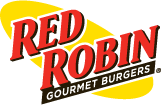Red Robin
Interested in selling your Red Robin NNN property or Red Robin ground lease property and was wondering what you can get for it in today’s changing market?

Number of locations
Revenue and income
Future plans
Corporate vs. franchise
Additional information Red Robin Properties
Red Robin was founded in 1969 in Seattle, Washington.
The restaurant chain is known for its gourmet burgers and bottomless fries.
Red Robin emphasizes a family-friendly dining atmosphere.
The company is listed on the NASDAQ stock exchange under the ticker symbol RRGB.
Red Robin History
Why Invest in Ground Lease and NNN Lease of Red Robin?
1) Red Robin NNN Property Investment: Stable income
2) Red Robin NNN Property Investment: Established tenant
3) Red Robin NNN Property Investment: Low management responsibility
4) Red Robin NNN Property Investment: Favorable lease terms
5) Red Robin NNN Property Investment: Real estate value
Red Robin’s strategic locations in high-traffic areas can enhance property value, offering potential capital appreciation.
Pros and Cons of Red Robin Ground Lease and NNN Lease Investment
Pros:
1. Stable income from a well-established brand in the casual dining industry.
2. The established tenant reduces the risk of vacancy and lease default.
3. Limited management responsibility for landlords.
4. Long lease terms contribute to stability and potential income growth.
Cons:
1. Lease renewal risk upon expiration.
2. Dependency on Red Robin’s success and operational challenges.
3. Sensitivity to economic factors and competition in the casual dining sector.
4. Limited control over certain property decisions.
5. General financial and market risks inherent in real estate investments.
Thorough due diligence and consideration of location, lease terms, tenant strength, and investment strategy are essential. Seek guidance from real estate professionals and financial advisors to align with your goals and risk tolerance.
Latest News: Red Robin
Loading…

